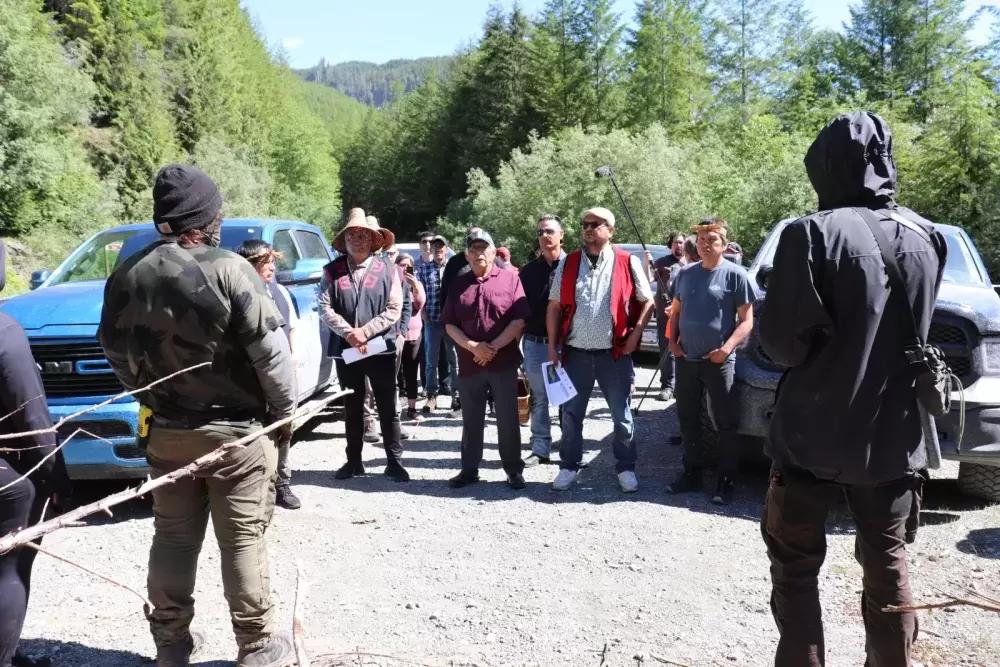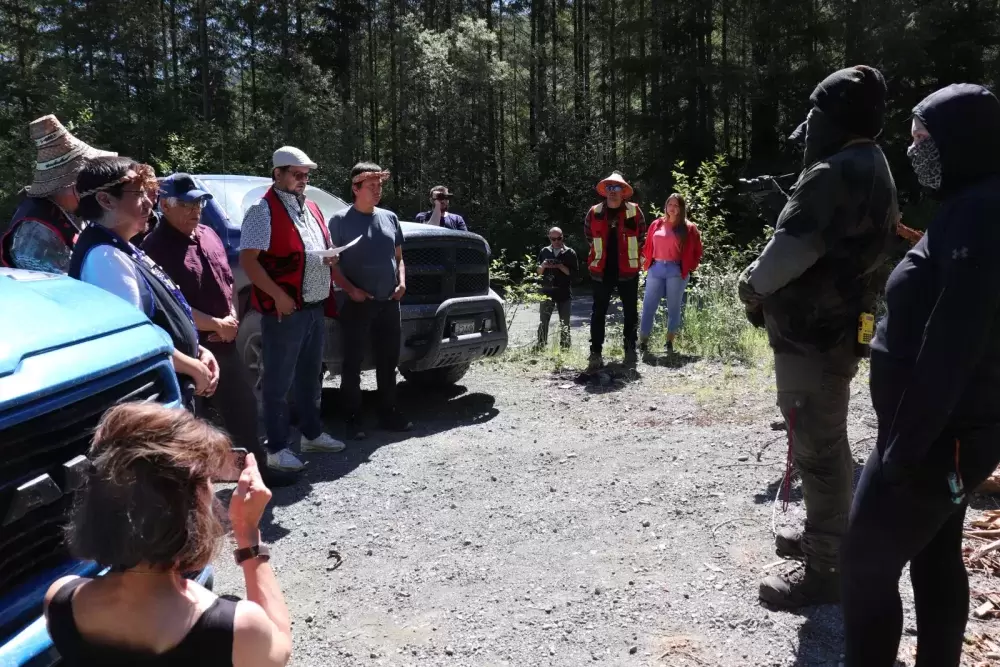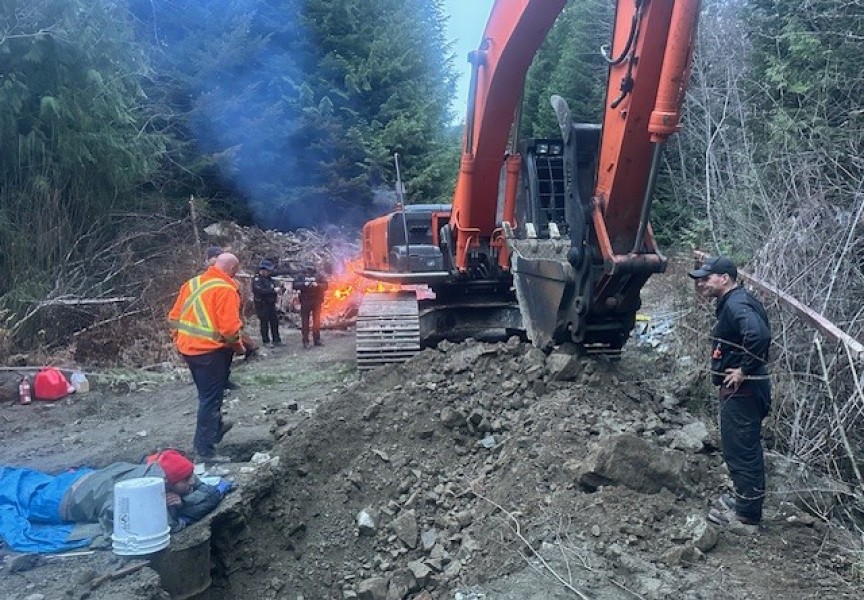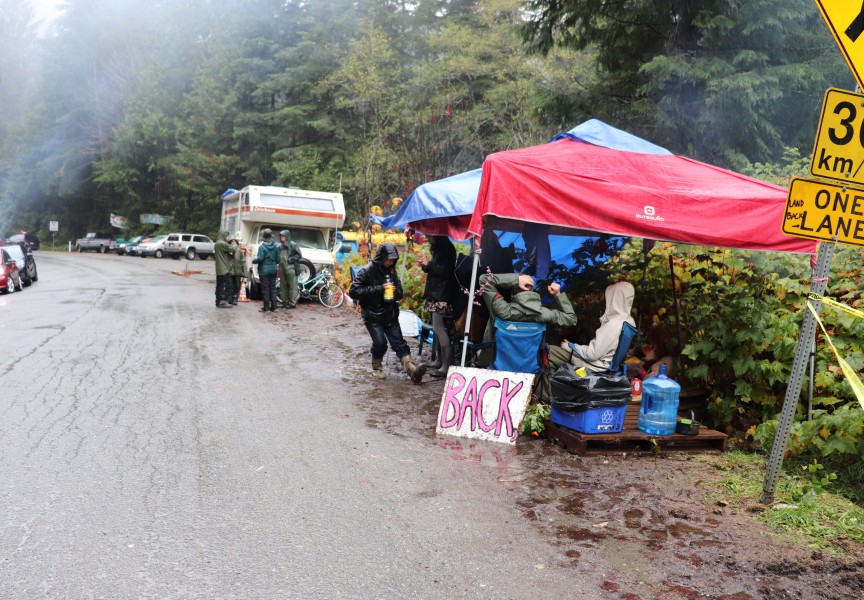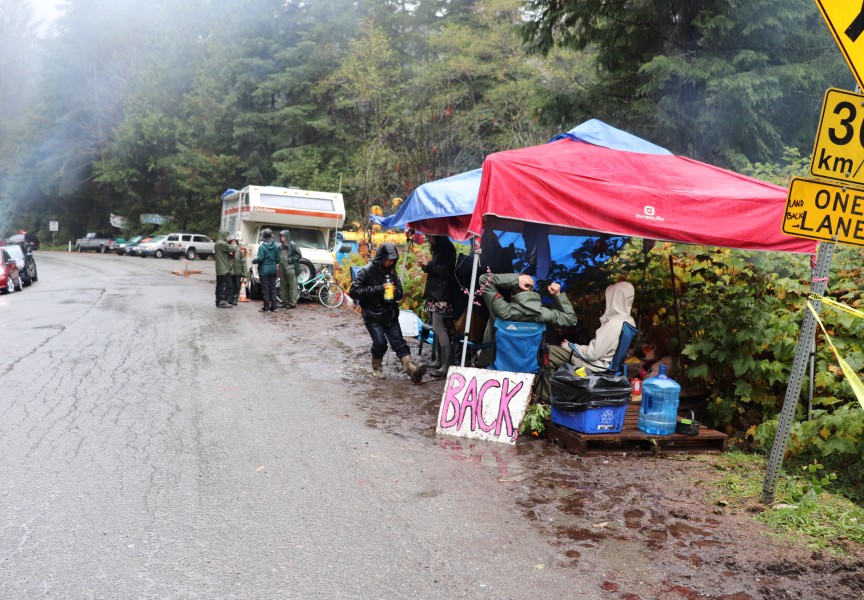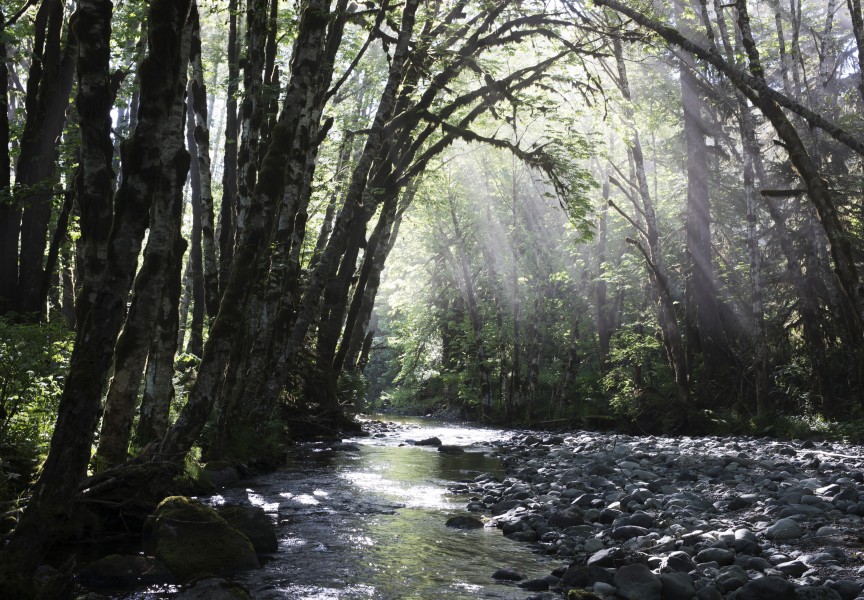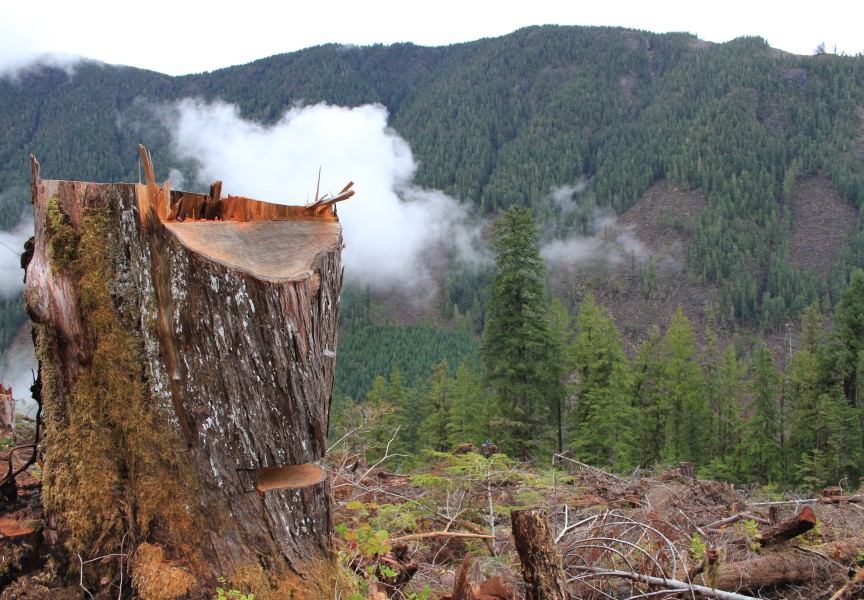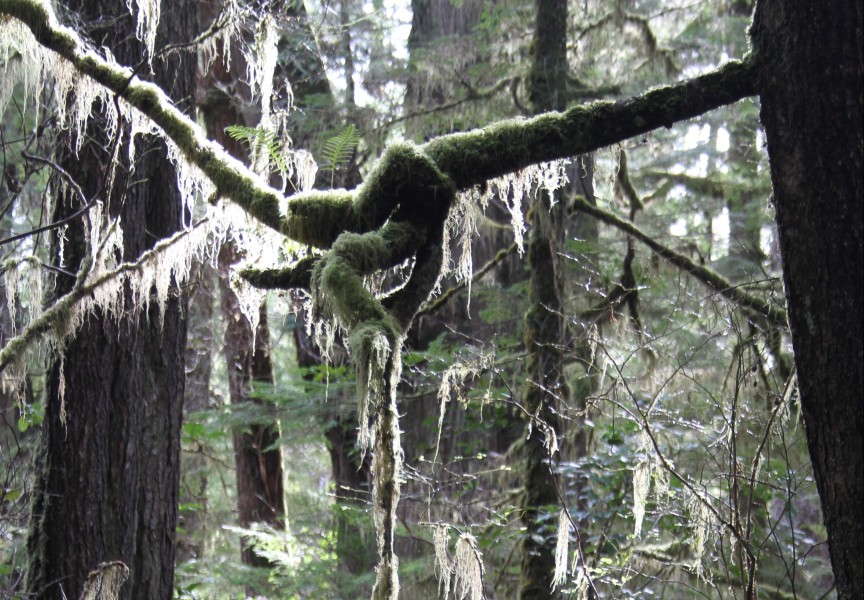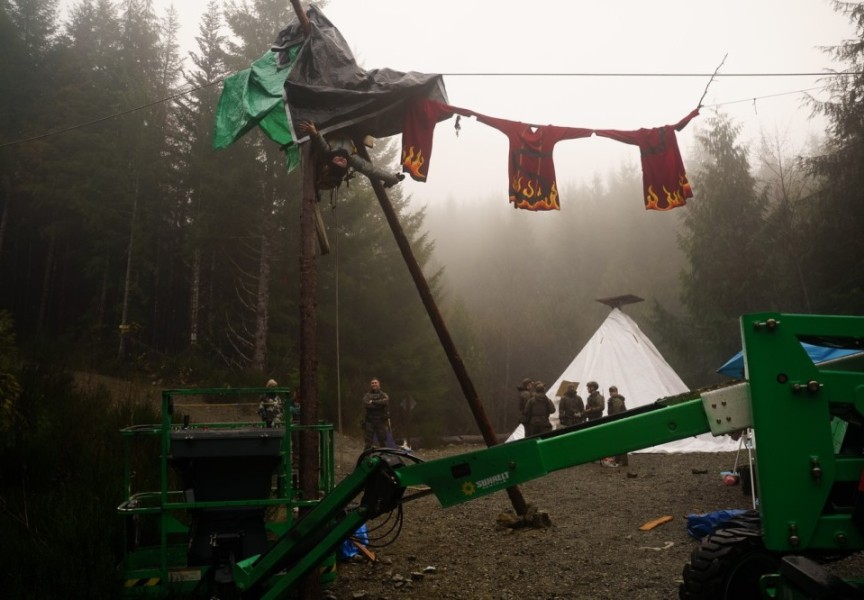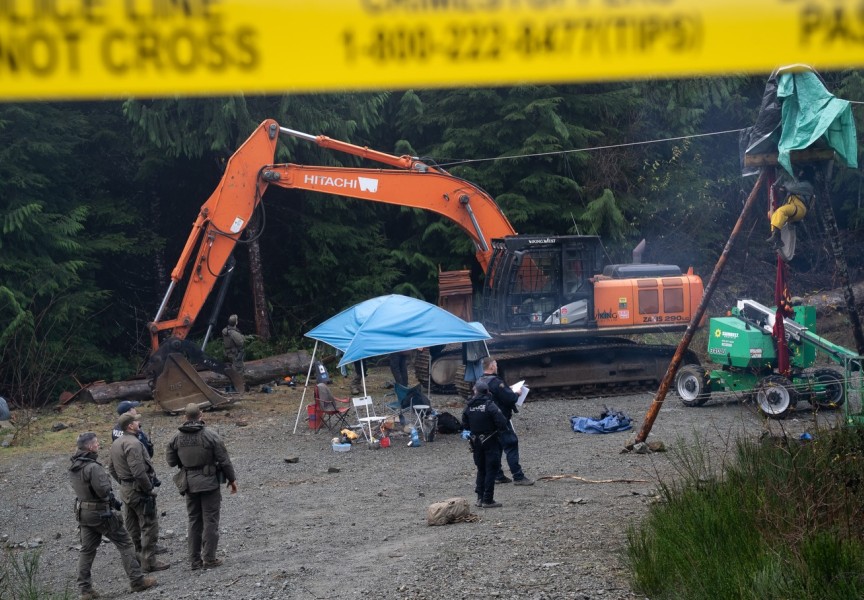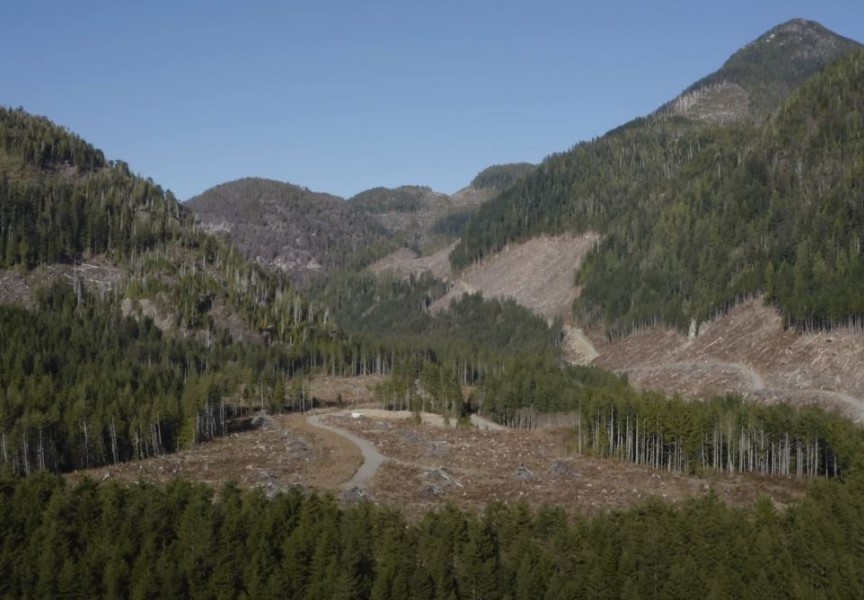Less than one week after Ditidaht Ha’wiih and elected officials served an eviction notice to an activist group illegally blocking a logging road, RCMP moved in to remove the encampment and arrest activists.
On June 23, Ditidaht, with support from neighbors Pacheedaht and Huu-ay-aht, arrived at the site on Carmanah Main to confront the old-growth forest activists, ordering them to leave.
The three elected chiefs, Brian Tate of Ditidaht, Jeff Jones of Pacheedaht and Robert Dennis of Huu-ay-aht, each spoke about their inherent rights to manage resources and their responsibilities to their people. They pointed out that none of the activists reached out to the leaders for permission to be there and they were asked to leave immediately.
It was apparent that the activists had no intention of leaving. Chief Tate told Ha-Shilth-Sa that plans for next steps were in the works.
Six days later, members of the RCMP arrived at the encampment to arrest activists and to begin clearing the road.
Tate told Ha-Shilth-Sa that they were informed by the RCMP on the evening of June 28 that they would begin clearing the area within two weeks.
At 8:30 a.m. on June 29, members of the RCMP moved in and began removing the illegal encampment.
“Last week there were 15 activists out there – yesterday there were only eight,” said Tate.
He stated that when the RCMP showed up two of the activists hopped in their cars and left on their own accord. Five activists that refused to leave were arrested and one ran into forest to hide.
“I don’t think there’s any more of them in the forest,” said Tate.
An excavator was brought in to clean up the debris and on June 30, the Ministry of Forests had everything hauled out later that day, according to Tate.
While the encampment was still in place, a Ditidaht member who chose not to be identified voiced concern over the effects of logging activity in the area.
“I feel like the trees have spirits, and that they want to cut them down, that makes me said,” said the First Nation’s elder and weaver, who uses cedar bark in her work.
One masked woman at the blockade defended her position by saying that they spoke to some of Ditidaht’s elders, “and they want us here,” she said, accusing Tate of not consulting with these elders.
Tate said that this group is not the same as those who were there last year, although some of the activists took part in the Fairy Creek blockades.
“The ones here this year were messy and disorganized,” said Tate.
He said that the RCMP reported to him that they found several containers of flammable fluids, including gasoline.
According to a statement from C̕awak ʔqin Forestry dated June 30th, the illegal encampment was built without free and prior consent of both hereditary and elected leaders of Ditidaht First Nation.
“Yesterday’s enforcement comes following several unsuccessful, but peaceful, attempts by Ditidaht to have the illegal camp removed, including a meeting with elected and hereditary Indigenous leaders from the Ditidaht, Huu-ay-aht and Pacheedaht First Nations on June 23,” they wrote.
By not obtaining consent from the First Nation for the camp, the activists violated both traditional Indigenous and provincial laws.
“It also infringes on the legal decision-making authority and sovereignty of the three Nations within their Ḥaḥahuułi (Traditional Territories) and TFL 44, and the rights granted to C̕awak ʔqin Forestry under provincial tenures and permits,” stated C̕awak ʔqin Forestry.
They went to say that interfering with the lawful use of property is a criminal offense and impeding access to the forestry roads is a violation of the court-ordered injunction that affects forest tenure in the area.
C̕awak ʔqin Forestry (Tsawak-qin Forestry Limited Partnership), formally known as TFL 44 Limited Partnership, operates TFL 44 and is a partnership between Huumiis Ventures Limited Partnership (wholly owned by Huu-ay-aht First Nations) and Western Forest Products Inc. TFL 44 covers roughly 137,000 hectares of land on west central Vancouver Island in the vicinity of Alberni Inlet and Great Central Lake.
Chief Tate says that everyone he’s spoken to in his community is happy that the encampment has been removed. Had it stayed, it would have been the second year that his people were denied access to their yellow cedar bark, medicinal plants and hunting grounds.
Tate recognizes that people have a right to peacefully protest but if they are thinking of demonstrating in Ditidaht territory in the future, they need to speak to the territory’s leaders first, to ask for permission.
“We may say yes, or maybe we’ll say no, but they have to come see us, we won’t be disrespected,” said Tate.

